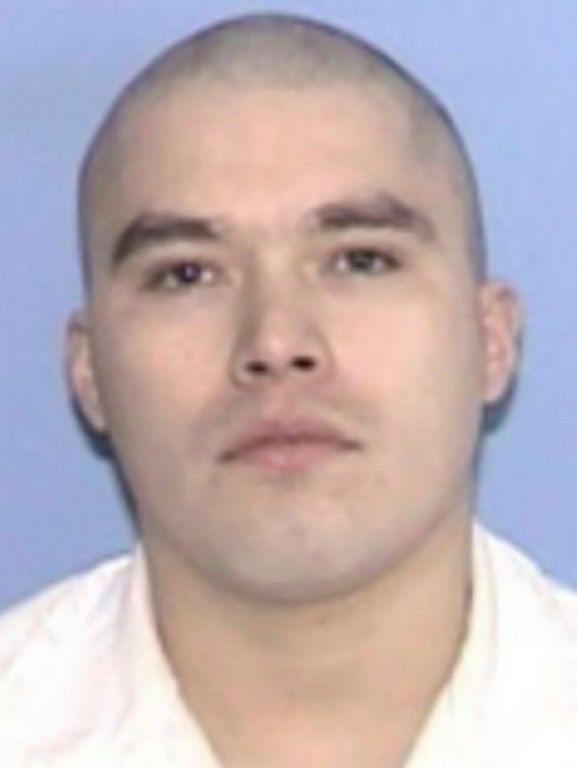US Supreme Court Debates Role Of Spiritual Advisors At Executions
A divided US Supreme Court heard arguments Tuesday on behalf of a convicted murderer in Texas who has asked that his personal pastor be allowed to touch him and pray aloud while he is put to death.
John Ramirez, 37, was scheduled to die by lethal injection in a Texas prison on September 8 for killing a convenience store clerk during a 2004 robbery, but the Supreme Court issued a last-minute stay of execution.
Seth Kretzer, Ramirez's lawyer, petitioned the court to halt the execution because the Texas Department of Criminal Justice would not allow Ramirez's Baptist pastor to have physical contact with him as he was executed or to pray out loud in the death chamber.

The Texas prison authorities allow a spiritual advisor to be in the room during an execution, but they must be quiet and are not allowed to touch a prisoner for security reasons.
The nine-member Supreme Court, which has six conservative justices and three liberals, heard two hours of argument on Tuesday.
Kretzer said Ramirez's religious concerns would be satisfied if his pastor, Dana Moore, would be allowed to pray aloud and touch his foot -- "an extremity on the complete far end of the body from the point at which the IV line will be inserted into his arm."

The court's three liberal justices appeared to be sympathetic to Ramirez.
"Are you aware in any other states of an execution going astray because of an outside spiritual advisor?" Justice Elena Kagan asked the Texas solicitor general, Judd Stone.
"No," said Stone but he added that prison authorities had an interest in "minimizing risk" during a carefully choreographed procedure in a somewhat cramped death chamber.
At least four of the six conservatives appeared skeptical of Ramirez's arguments.

"We can look forward to an unending stream of variations," said Justice Samuel Alito. "What's going to happen when the next prisoner says that I have a religious belief that he should touch my knee. He should hold my hand. He should put his hand over my heart.
"We're going to have to go through the whole human anatomy with a series of cases."
Justice Clarence Thomas, another conservative, questioned whether Ramirez was "gaming the system" in an attempt to delay his execution.

Chief Justice John Roberts asked how a court can assess the "sincerity" of a condemned man's religious beliefs.
"There's no insincerity as to Mr. Ramirez's consistently stated beliefs," Kretzer said.
Justice Brett Kavanaugh, another conservative, echoed claims by Texas prison officials about the potential risk of having someone who is not a sanctioned state prison official in the death chamber.
"Why isn't that a compelling interest when the state says we want the risk to be as close to zero as possible and if we allow touching and the like, the risk increases?" Kavanaugh asked.
When Ramirez was 20, he stabbed a clerk to death while robbing a convenience store in southern Texas. He avoided capture for four years but was finally arrested in 2008 and sentenced to death a year later.
The Supreme Court rarely intervenes to halt executions, but it has done so in recent cases where prisoners have argued they are being denied access to spiritual advisors.
The court could take the opportunity of Ramirez's case to clarify its position on the religious rights of those sentenced to death.
In 2018, it rejected the request of a stay of execution for a Muslim prisoner who asked for an imam to be by his side during his execution.
A few weeks later, following a public outcry, a stay was granted to an inmate who wanted a Buddhist spiritual advisor to accompany him to the execution chamber.
Several states have banned all spiritual advisors from the death chamber, but the court ruled earlier this year that states could not bar religious advisors entirely.
Ramirez's case would allow the court to potentially say what restrictions on the presence of spiritual advisors are legitimate in the execution chamber.
The court is expected to announce its decision by June 2022.
© Copyright AFP 2024. All rights reserved.





















